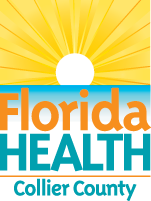It's a New Day in Public Health.
The Florida Department of Health works to protect, promote, and improve the health of all people in Florida through integrated state, county, and community efforts.
FLORIDA DEPARTMENT OF HEALTH-COLLIER COUNTY RECOGNIZES SEPTEMBER 28TH AS WORLD RABIES DAY
September 28, 2015
Naples, Fla. – The Florida Department of Health in Collier County (DOH-Collier) promotes rabies awareness, education, and prevention by celebrating World Rabies Day on September 28, 2015. In 2014, DOH-Collier investigated more than 50 cases where an animal bit a human and post-exposure treatment was recommended to prevent rabies transmission. Collier County health officials remind residents that rabies prevention begins at home.
World Rabies Day is a great opportunity to raise awareness of a serious disease that affects humans and animals. Rabies is a fatal viral infection, which is 100% preventable by avoiding contact with wild animals, and educating those at risk.
This year’s theme is “End Rabies Together!” The worldwide campaign aims to raise awareness and resources to enhance prevention and control of rabies, with the overall vision of successful human rabies prevention and elimination of dog-to-dog transmission of rabies. Founded by the U.S. Centers for Disease Control and Prevention (CDC) and the Alliance for Rabies Control, a United Kingdom charity, the World Rabies Day initiative aims to bring together relevant partners in an effort to address rabies prevention and control.
Rabies is caused by a virus that people and other mammals can get through certain exposures to the saliva or nervous tissue from a rabid animal and is nearly always fatal without proper post-exposure treatment. When an animal is infected with rabies, the virus is shed in the saliva and can be passed to another animal or a person, usually through a bite. Transmission may also occur if this saliva or the animal’s nervous tissue enters open wounds, the mouth, nose or eyes of another animal or person. In Florida in 2014, there were 92 animals found to be rabid including 50 raccoons, 5 foxes, 19 bats, 15 domestic cats, 2 dogs and 1 horse. Unvaccinated outdoor cats are the domestic animal most likely to develop rabies. Rabies is an uncommon human disease in the U.S. because of good animal vaccination programs and human post-exposure treatment. In the U.S., typically 2-3 cases of human rabies are reported per year; to date no cases were confirmed by the CDC in 2014.
If your pet, farm animal, or any wild animal bites you or someone, you should wash the wound thoroughly with soap and water for at least 5 minutes, contact your physician immediately, and report the bite to the local health department and/or local animal control services. If your pet or farm animal is bitten by another animal, you should contact local animal control services, and your veterinarian immediately and have him/her examine your pet and assess your pet’s vaccination needs.
Please protect your family and join the health department and other community agencies in raising awareness about this serious disease, and the methods for preventing it. For more information about rabies and World Rabies Day, please visit https://www.cdc.gov/features/rabies/index.html or https://www.floridahealth.gov/diseases-and-conditions/rabies/index.html .
###
About the Florida Department of Health
The department works to protect, promote and improve the health of all people in Florida through integrated state, county and community efforts.
Follow us on Twitter at @HealthyFla and on Facebook. For more information about the Florida Department of Health please visit www.FloridaHealth.gov.





Connect with DOH